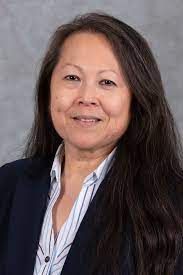- Bone Health
- Immunology
- Hematology
- Respiratory
- Dermatology
- Diabetes
- Gastroenterology
- Neurology
- Oncology
- Ophthalmology
- Rare Disease
- Rheumatology
US, EU Regulators Discuss Tailoring Biosimilar Approvals
During a talk at the Medicines for Europe Biosimilar Medicines Conference, US and EU regulators discuss the potential for tailored approach to bring biosimilars to market sooner with less expense and wasted effort.
A tailored approach to biosimilar approvals is conceived as the next big leap for regulatory advancement in getting these drugs to market efficiently, but in both the United States and Europe there are factors slowing this advance. The tailored approach would do away with automatic requirements for the comparative clinical efficacy study, which has been described as a “blunt instrument” compared with analytical investigative studies that are considered more sensitive tools.
The COVID-19 pandemic has been a big impediment to progress of the tailored approach in the European Union, where regulatory attention has been distracted by more pressing priorities, said a panel of experts assembled by Medicines for Europe. In the United States, a tailored approach has been considered, but, separately, biosimilar acceptance has been slow and the US health care system does not seem to be ready for reduced reliance on comparative clinical trials, whether scientifically justified or not, said Sarah Yim, MD, director of the Office of Therapeutic Biologics and Biosimilars at the FDA.
“I do think that there’s some additional knowledge that needs to be accrued before everyone’s going to feel comfortable with tailoring things, but I think we’re getting close with monoclonal antibodies,” she said.
In 2017 the European Medicines Agency (EMA) instituted a tailored pilot program for biosimilars that would allow biosimilar developers to meet with agency officials prior to submitting an application and decide, based on the product development plan and available evidence, what types of information would need to be gathered for a successfully comprehensive data package. This would allow a case-by-case adjustment in data requirements rather than a one-size-fits-all approach.
In the stepwise approach to biosimilar development, comparative quality studies involving assessments of physical and chemical properties are combined with functional assessments of biological and pharmacological activity. Next come comparative nonclinical studies for pharmacodynamics and toxicology, and finally, comparative clinical studies using human populations that assess efficacy, safety, and immunogenicity along with pharmacokinetic and pharmacodynamic properties, in comparison with the originator products the biosimilar candidate is based on.
COVID-19 has diverted a lot of regulatory attention and resources, so tweaking the biosimilars approvals process is not a priority, said Ana Hidalgo-Simon, MD, PhD, head of Advanced Therapies for the EMA. “We’re still in what we call the BCP—the business continuity plan. We do not have the right conditions to start setting dates, but the conversation is there, and the line of progression [toward tailoring] is fairly clear.”
Although biosimilars in Europe got a foothold 5 years earlier than in the United States, some stakeholder education would be required to clear a path in Europe toward a tailored approach, said panelist Martin Schiestl, global head of Regulatory Affairs and Policy at Sandoz. There’s still a tendency to want to follow the established routine rather than modify the biosimilar acceptance policy so that it conforms to what makes the most sense. “Moving away from this tick-the-box mentality to a real scientific evaluation and discussion, I think, is important,” he said.
In the United Kingdom, where the Medicines and Healthcare products Regulatory Agency (MHRA) now reviews drugs for approval independently following Brexit, a deemphasis on the comparative clinical efficacy trial for approvals will not necessarily bring an end to demands for relaxed requirements, said panelist Anne Cook, PhD, an expert quality assessor for the MHRA.
“Quality is the foundation of the whole biosimilar package. We need a good package of data on which to make that decision. Just because there are shortcuts in other areas of biosimilar development, where you’re not leading animal studies, for instance, you do need your PK.” UK regulators have had to be firm with pharmaceutical companies in order to get the data they need for reliable decisions, she said.
The FDA Position on Tailoring
In the FDA, there still is some respect for the type of confirmation that a clinical efficacy study can provide, Yim said. “There’s a wide variety of biologics, and there are some biologics for which we don’t know everything about their mechanism for the various conditions that they’re approved to treat,” she said. When a biosimilar candidate doesn’t conform to established ranges for equivalence to reference products, comparative clinical studies can help to answer the question whether that incongruity is clinically meaningful or not, she said.
However, in 2015 guidance for biosimilars development, the FDA did suggest the possibility of tailoring, and there may be more about this in pending guidance updates, Yim said. “I think that we will put a greater emphasis on tailoring where it’s possible. We have to bring our clinical regulators on board with that, and they’re not all at the same place."
If comparative efficacy testing were dropped in favor of a tailored approach in the United States, there would be some catchup required to get stakeholders on the side of biosimilars approved this way, said Yim.
The same applies in the European Union, said Hidalgo-Simon. “We are not there in Europe. We would like to be there, and we are optimistic. When you look at the biosimilar uptake figures, you wonder why they are not higher than they are, considering how good these drugs are and how many marvelous life changes they can achieve. I don’t think that tailored development is going to be a huge jump. I think it’s another step in the same road, and the road goes through gaining the confidence of all the users now. We’re ready to do it, but we will still be talking about it in 2 years’ time,” she predicted.
In the United Kingdom, biosimilar acceptance has been pretty robust, Cook said. That was partly attributable to efforts to convene stakeholders and boost awareness of the underlying scientific rationale for these agents. “We had a lot of workshops, meetings, information, and studies. If you looked at the uptake of infliximab, an early biosimilar, that was fairly slow, because people weren’t sure what they were dealing with. And then you move to the uptake of rituximab and then some of the newer biosimilars as they’ve come on, and the uptake has been faster and faster. A lot of this is around confidence in using the products, but you have to start somewhere, and I think this interaction with all the different stakeholders was very important,” she said.
“We were very lucky that we had quite a few people who were very keen to try things but also to carefully monitor, and I think that’s the other point. There’s very careful pharmacovigilance to make sure that what you’re saying is what you’re seeing, and so I think that really helped with the uptake in the United Kingdom.”
For more coverage of the Medicines for Europe panel discussion, click here.
Newsletter
Where clinical, regulatory, and economic perspectives converge—sign up for Center for Biosimilars® emails to get expert insights on emerging treatment paradigms, biosimilar policy, and real-world outcomes that shape patient care.




